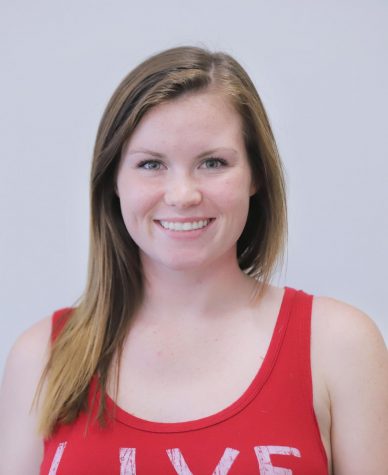Agribusiness is a new concentration being introduced and implemented in the economics department within the Dillard College of Business Administration this upcoming fall 2018 semester.
Students enrolling in the new agribusiness classes will be trained to do the managerial and business aspects relating to agriculture.
“These courses are not basic, introductory classes,” Jeff Stambaugh, interim dean of the Dillard College of Business Administration, said. “They are advanced courses.”
Agribusiness courses will be in the upper level class rankings consisting of 3,000 and 4,000 level classes.
“We [will] roll out some of the classes dual-listed with economics in the fall,” Robert Forrester, Dillard distinguished professor of finance, said. “Then [we] will have a full roll-out in the [following] spring [semester]. The faculty have already approved courses and gone through the undergraduate committee.”
Forrester said members of the agribusiness committee are working on course schedules and are waiting on approval to hire an additional faculty member with specialization in the agribusiness degree. Once approved, advertising for the position will be the next step to hiring a qualified candidate.
“As we attain different levels of enrollment into the program then we can add additional ones,” Forrester said. “We can’t just bring everybody in, we have to do it in a planned, strategic method.”
Agriculture is a $100 billion industry and according to AgCareers.com more than 40,000 jobs are available within this field of business. The United States Department of Agriculture estimated 54,400 jobs open that require at least a bachelor’s degree in agribusiness. Forrester said DCOBA didn’t want to ignore the market opportunity that could be available to students, especially when it’s related to business.
“That’s not an area we’ve been able to get into,” Forrester said. “We would’ve liked to because we have professionals on our faculty that have experience in this area, but we simply didn’t have the budget for it. In economics, we know we have a scarce resource and that was money.”
In the state of Texas, there are 248,800 farms and 130.2 million acres available for purchase and use within the agribusiness industry.
“Because of our connections with the local business community, meaning farmers and ranchers, it gives us an advantage, location wise, over a metropolis location,” Forrester said.
Stambaugh said not having the agribusiness concentration was an obvious gap in DCOBA’s portfolio in terms of serving our location.
“So much of North Texas is involved in agriculture,” Stambaugh said. “This was a major need we were never addressing. It’s one of those forehead-smackers.”
According to Pablo Garcia-Fuentes, economics assistant professor, agribusiness is much more than growing and selling crops and tending to ranch animals.
“For example, the United States doesn’t just consume all the corn,” Garcia-Fuentes said. “Corn is also used for ethanol and is exported. Every time you go through a gas station you are consuming corn.”
The DCOBA mission statement is to provide students an educational experience that develops knowledge and competencies needed for professional career entry. Forrester said DCOBA provides specialized services contributing to economic education and the agribusiness career path fits into that mission statement.
“That’s what we really want to do, help students get jobs,” Forrester said. “Through Dr. Shipley’s connections we were able to get a donor.”
Forrester said classes next fall are expected to be fairly full.
“Some students may be in there for exactly agribusiness,” Forrester said. “Some students will be an economics major that would like to enhance their portfolio of classes by taking an agribusiness class. We’re hoping that the class sizes will be somewhere around 15 students.”
Forrester said the committee hasn’t developed all the opportunities as far as internships and scholarships, but there are value propositions that are being considered.
“A value proposition would be for students who have a two-year degree from another college who want to do a completion degree,” Forrester said. “We’d like to have something they are interested in and for a lot of [students] there hasn’t been a program they’re interested in within the ag career.”
Carol Dillard donated over $1 million to fulfill her dream of helping her background in economics and farm and ranch management expand.
“Four generations have been a part of giving to MSU, so we are really honored for them to have done that,” Forrester said. “She was really excited, and that was probably one of the easy donations. For us at the Dillard college, we were very proud of the opportunity to put this together and advance the lives of students.”
Yoshi Fukasawa, chair professor of economics, was also a part of the campaign to starting the agribusiness concentration of economics.
“One of the greatest things I got out of it [being on the agribusiness committee] was I got to work with Yoshi Fukasawa. This was one of the last projects he worked on. We were working on it last week putting things together, but Yoshi passed away on Sunday, so this is particularly special for all of us who worked with him on this project,” Forrester said. “It’s one of those things that you will remember for the rest of your lives, to work with someone like this and it’s been a very rewarding experience to sit on this campaign and be part of it.”
















